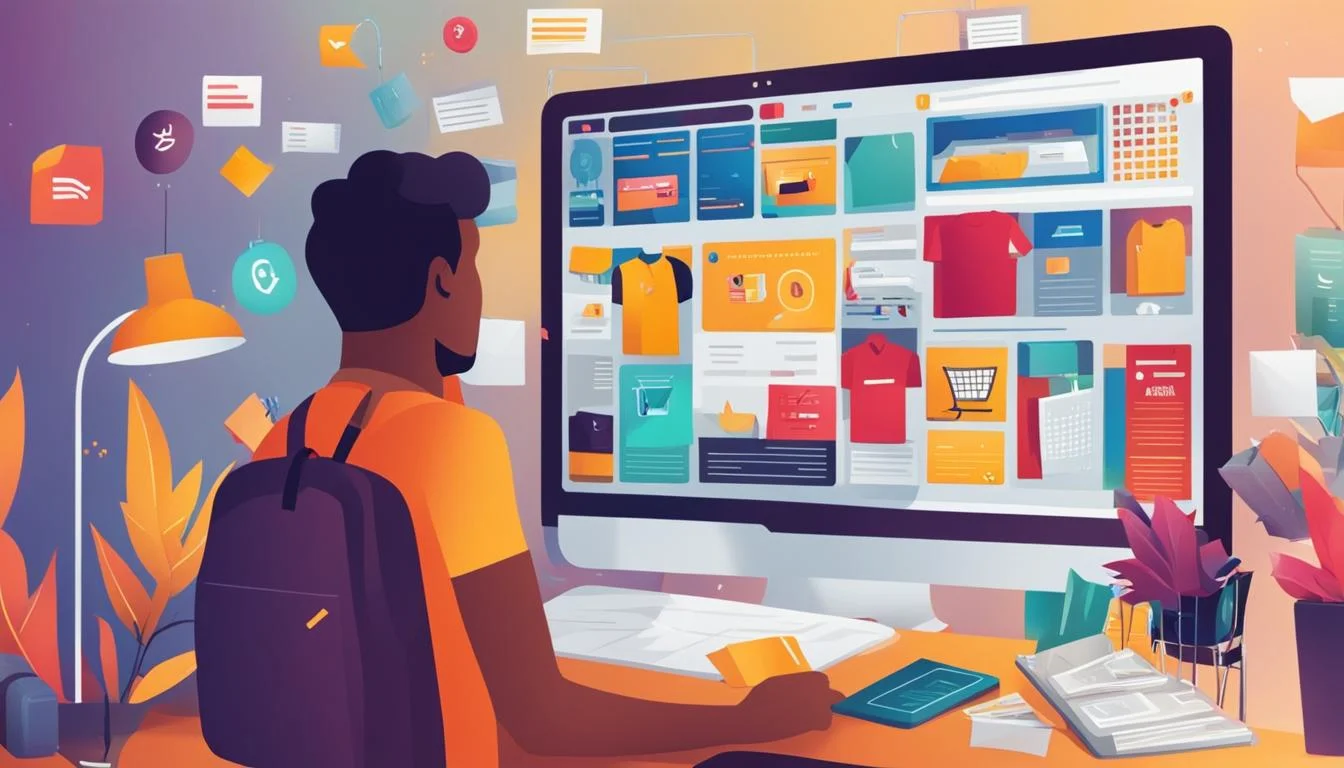A Guide for Aspiring Entrepreneurs: Navigating the Dynamic World of Ecommerce

Introduction
Today, with the rise of urbanization and industrialization, fewer people than ever rely on nature for their sustenance. For everyone else, commerce is the main means of ensuring resources in an ever-competitive world. The business world, however, is dynamic, and it takes an agile leader to navigate the challenges that a business goes through. However, the experience is just as rewarding when you see the business growing.
For someone just starting out in the business world, this might come as an overload of information. Therefore, I have compiled the following guide to help all aspiring entrepreneurs, going through which would give one an idea of what challenges one must expect, and how one might make a roadmap for their path forward.
Why E-commerce
The Internet has affected every industry on earth and shaped commerce and trade into something entirely different from what it was a few decades ago. Consumers around the world do not have the same relationship with the products they consume as they did a century ago, and this translates to companies as well, who in turn have started approaching their desired markets accordingly. With much of the human species has gained access to the internet, e-commerce platforms have grown exponentially throughout the past decade with no sign of slowing down.
E-commerce used to be something only companies with a big enough impact used to dabble in so they could expand their customer base exponentially. As of last year, however, it has grown to a $6 trillion industry. What’s more, all speculations point to it only growing in the coming years. This presents us with a unique opportunity. As much of the world begins to rely on electronic technology for their needs, they will need more and more businesses to fulfill those needs, leaving those with the knowledge and skills to come and take advantage of this.
How to Set Up Your Store
Setting up an online business is very easy. Even if you’re a beginner with no business to start off with, following these steps will help you immensely.
Researching your Niche:
The first thing you need to decide is what niche your business is going to fill. Is there a problem that you’re trying to solve? Or are you trying to innovate a solution that is already commonly used? Whatever you may put your finger on, there are three metrics on which you can judge how successful the niche you have chosen could be.
Profitability:
When one starts their business, they rarely look forward to dwindling profits. As such, you must analyze the products and services you want to sell and look at their profitability. For example, a product that costs too much to manufacture would not be as profit, or as easy to sell as a very cheap product that you can then sell at or below the market price.
Searchability:
As an e-commerce business, products that are popular on the internet and get searched a lot are going to generate way more traffic for you than obscure products that might only be desired by a few people.
Passion:
The final thing you need to analyze in order to determine what your product portfolio will look like is yourself. What is it that you want to sell? What is a business that you think would represent you? Do that! There is nothing over which people will connect to you more quickly than over something that you are genuinely passionate about. So whatever your business is, make sure it aligns with your principles.
Researching your Delivery Method
Online retailers are multiplying as we speak, and the competition doesn’t seem to be slowing down any time soon. Therefore, to stand out, one must take into account everything. The following are some common delivery methods, you must choose the one that works best for your business needs.
D2C (Direct-To-Consumer):
This is when a business makes their own products and delivers them directly to their customers.
Drop Shipping: When businesses set up storefronts without any stock. The products are shipped directly from the producers or wholesalers to the consumers.
Wholesale: In this method, a seller must maintain a minimum stock, buying from producers in bulk and selling to consumers or businesses.
White Label:
Sometimes businesses buy generic products with no label, selling them by puting on labels for their own businesses. This is used by businesses who can’t invest in production themselves.
Private Label:
If you want a specialized product that is only available at your store, you can ask distributors to make a line of products specifically for you.
Subscription:
For a lot of specialized products, you can offer customers timely subscriptions.
Research your Online Marketplace
Online marketplaces are websites wherein you can make a specialized page for your business. Although there are countless online marketplaces that operate today, there is also no limit on how many places your store can exist. However, going through all of those would be time- and energy-consuming so the following is a list of some of the biggest online marketplaces that you can start from.
Amazon:
Possibly one of the biggest online marketplaces to date, Amazon is a B2C business populated by a myriad of stores offering a variety of things from around the world. Although the traffic it gets is ungodly, the competition your store will face is too.
Alibaba:
Alibaba is a B2B marketplace which businesses from around the world use to source their products. It is possibly the most widely-used B2B service around at the time, and would be a great place to start if you want to sell your product in bulk.
Woocommerce:
An up-and-coming marketplace that has already been decorated with a few awards, Woocommerce is very new but a chunk of the online traffic for marketplaces already goes through. Any business establishing themselves here right now will experience a first-mover’s advantage.
How to Market Your Store
Now that you have a business presence established, along with a line of products and a way to get them to your customers, the next step is to get the word out. No matter how good your business is or how optimized your app is, no one is going to visit it if they don’t know about it. Following are some ways in which you could market your business well:
Online ads are a great way to familiarize people with your brand. If your product is something a lot of people would be interested in, online ads might work well.
If you are in a niche market, it might help to find an influencer that shares your niche and ask them to market your product. This way, you will reach your target audience faster.
Social Media is a great tool to reach out to people. By establishing a consistent online presence, you can grow your audience exponentially.
Giving customers discounts for repeated visits or referrals might also help attract new customers in the beginning.
Conclusion
Commerce has been the backbone of prosperity for a lot of the world since the advent of civilization. Little has changed today, as prosperity is still tied greatly to commerce. However, with the advent of the internet more people can have access to commerce from the comfort of their homes. Knowledge about these tools can give people an advantage in terms of their financial well being, bringing them prosperity.




